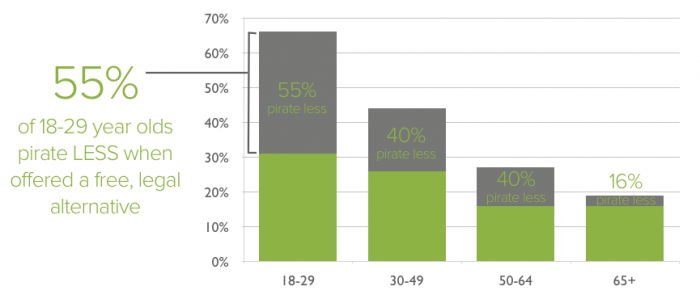Spotify’s impact on piracy
Spotify was designed from the ground up to combat piracy. Over on Spotify Artists they outline the results.

How has Spotify impacted music piracy in the real world? There have been a number of independent studies into the impact that Spotify and similar legal services have had on piracy. Below are some of the findings and links to the original reports (some reports are not in English):
Sweden
‘Music Sweden: File Sharing & Download, 2011 Q2’ showed that the number of people who pirated music fell by 25 percent in Sweden between 2009 and 2011.
Denmark
In 2013, the Danish IFPI published research headlined: ‘Streaming services are a pirate killer’. The key finding was that 48% of the users on legal streaming services have previously downloaded illegally, and 81% of them say that they have now stopped.
Norway
In Norway, which continues to have the highest digital revenues per capita in the world, a recent IPSOS report showed that in 2008 almost 1.2 billion songs were copied without permission. However, by 2012 that figure had plummeted to 210 million, just one fifth of its level four years earlier.
U.S.A
In the United States, Sandvine’s most recent Global Internet Phenomena Report states that P2P Filesharing now accounts for less than 10% of total daily traffic in North America. The report also notes that ‘filesharing continues to disappear from many fixed access networks across the globe as Real-Time Entertainment options [like Spotify] are providing subscribers a wealth of content at reasonable prices’.
U.K.
The UK regulator Ofcom completed their Copyright Infringement Tracker, Wave 4, in September 2013. Their key finding: of all digital music consumers, three quarters were legal only; just one seventh illegal only and a eighth were a combination of both.





